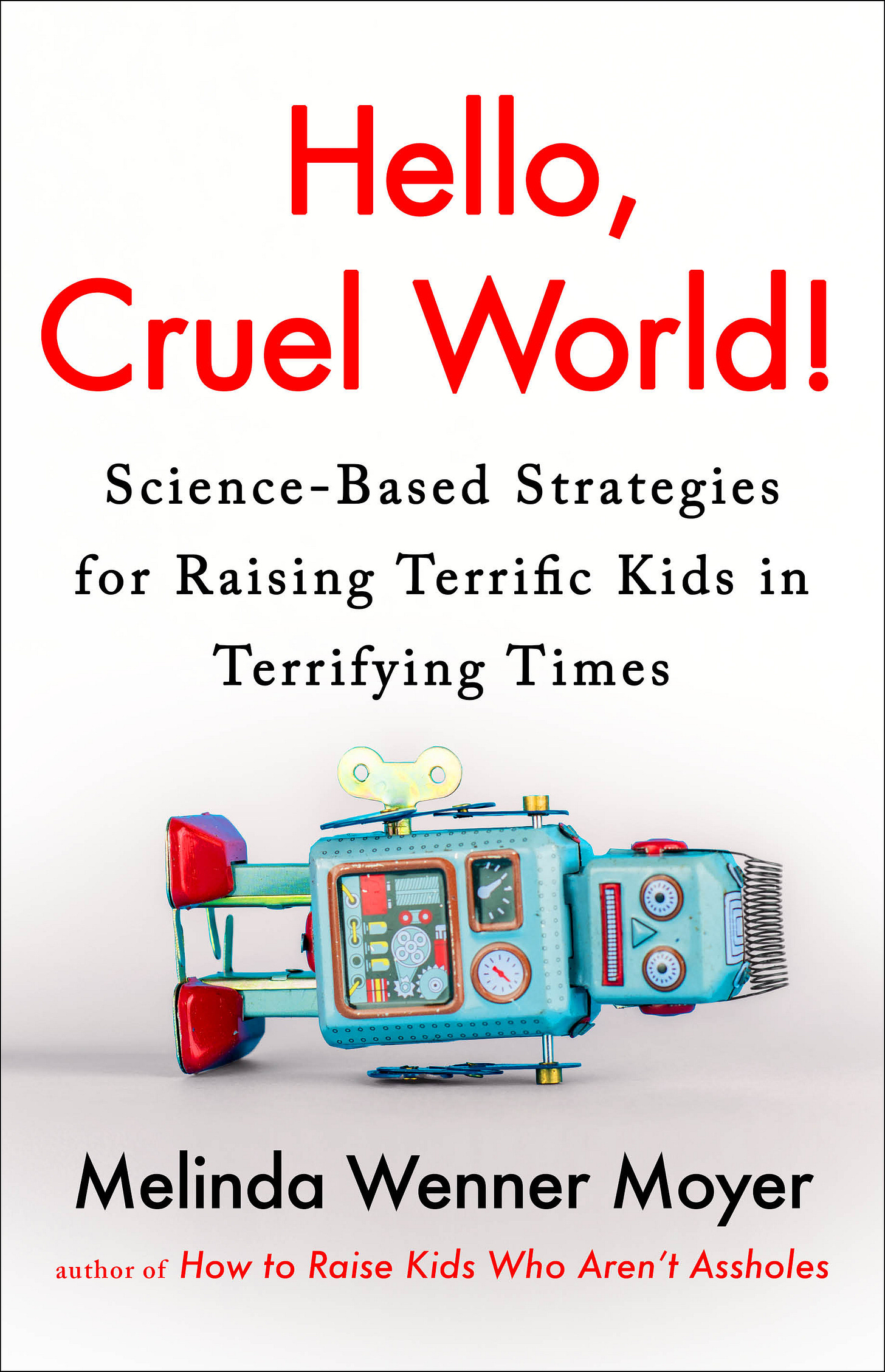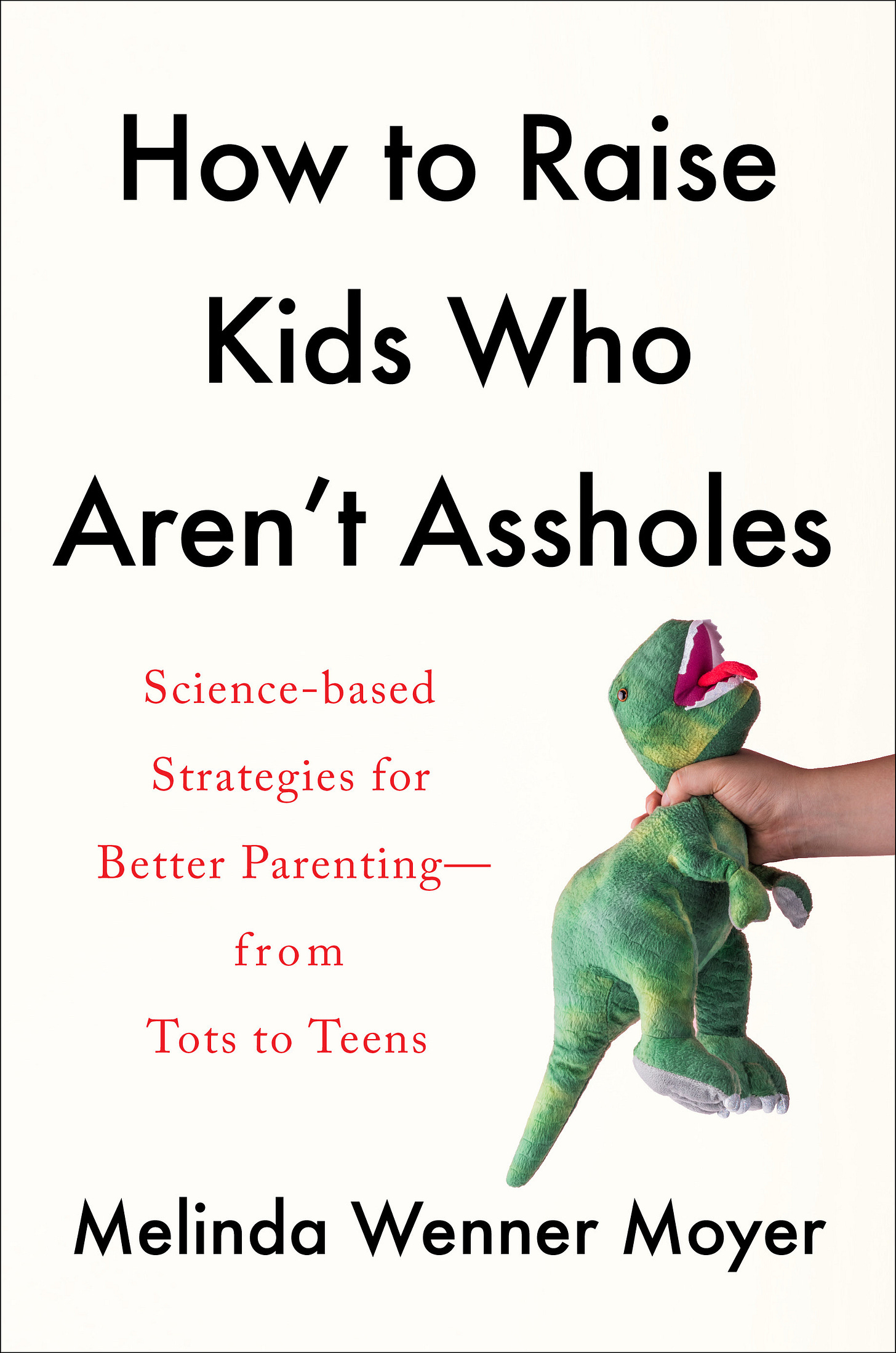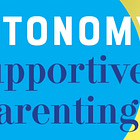Negative Teen Stereotypes Are a Self-Fulfilling Prophecy
Let's change the narrative for good.
When my son turned 13, I got worried. Suddenly I had a teenager, and of course I knew and feared all the stereotypes about teens: They are withdrawn. They are moody. They are defiant.
Was my sweet son going to turn into a monster?
He’s now 14, which, according to a recent study, is the age at which adolescents around the world peak in terms of externalizing behaviors — aggression, defiance, and impulsivity. But my son doesn’t exhibit much of that at all. He’s certainly quieter than he used to be, and a hell of a lot taller. Sometimes, yes, he gets moody. He sleeps late. But he isn’t particularly aggressive or defiant, and he’s still fun to be around.
Some teens struggle and act out more than others, of course. But it turns out that our stereotypes about teens largely aren’t accurate — and that they can also be actively harmful. Research finds that when adults believe negative stereotypes about adolescents, teens are more likely to believe them, too, and to then act in accordance with them — like a dangerous self-fulfilling prophecy.
If we, as adults, can let go of our anti-adolescent biases, we can help teens become the best versions of themselves.
How we got here
Over a century ago, Stanley Hall, the first president of the American Psychological Association, characterized adolescence as a time of “storm and stress,” a period marked by disruptive emotions and behaviors and intense parent-child conflict. The idea caught on, and for decades, many psychologists and educators perceived adolescents through this negative lens, to the point where promoting positive development in youth was all about making teens less bad, and positive behavior was defined by what teens didn’t do (e.g. smoke, drink, have sex, bully).
Yet for a long while, some researchers have also argued that this deficit-based model is not constructive. It would be far better, they’ve said, to adopt a strength-based model, where the focus is on identifying how to enhance teens’ positive attributes, rather than just to prevent the negative stuff. When adolescents are perceived as more or less “bad,” rather than as inherently good, educators and policymakers become more inclined to treat them in controlling and disrespectful ways to regulate their behavior. And that typically backfires, because what kids really need during adolescence is the opposite: connection and autonomy.
If you look at the science, our stereotypes about teens simply aren’t accurate, either. In a 2023 longitudinal study, researchers tracked child behavior from ages 8 to 17 in eight countries at seven different time points. What did they find? “Typical behavior in all groups across adolescence was more positive than negative,” they wrote. “Many developmental trajectories did not indicate increasing problems. After more than a century dominated by a storm and stress characterization that emanated from and was perpetuated by Western European theorists and researchers, it is time to take a more positive and nuanced characterization of adolescence seriously.”
How our beliefs about teens shape their behavior
Our stereotypes about adolescents don’t merely affect how we treat them, though — they also shape how teens perceive themselves and the choices they make.
In cultures where teens are less negatively stereotyped, teens tend to exhibit more positive behavior. In a 2020 study, researchers including Yang Qu, a developmental psychologist at at Northwestern University, compared adolescent behavior among teens who lived in China and those who lived in Hong Kong. In China, adults (and teens) conceive of adolescence as a time when kids emphasize love, respect, and support for parents and elders, as well as when they fulfill family and academic obligations. In Hong Kong, on the other hand, teen stereotypes are more aligned with those in the U.S. — teens are expected to disengage with family and academic obligations.
The researchers found that adolescents in Hong Kong, where stereotypes about teens are more negative, exhibited more problem behaviors than teens in China did.
In other studies, researchers have found that when American parents expect that their kids will drink or be rebellious as teenagers, their kids are more likely to meet those expectations in the future — whereas kids whose mothers do not expect such behavior are less likely to behave in these ways. These findings suggest that stereotypes surrounding adolescence may actually shape teen behavior.
Most recently, in a study published last week, researchers including Qu tracked how Chinese youth’s views of adolescence affected their behavior over time. The more teens viewed adolescence as a time of familial obligation, the better they handled academic challenges and the stronger their relationship was with their parents.
How to change the narrative
One key thing we can do for teens is to try to recognize when we are stereotyping or catastrophizing and then reframe our thinking. We should notice when our teens are being awesome, too. Wake Forest University psychologist Christy Buchanan, who studies adolescent stereotypes, put it this way in an interview:
Try to pay attention to the positive things that your teenager is doing. Explicitly look for those things that you might miss because of a confirmation bias, the things they’re doing every day, often, all day long.
Parents can explicitly pay attention to those things they might miss because of the negative stereotypes. They can notice the positive things adolescents are doing most of the time. Whether it’s getting up on time to make it to school, doing homework, helping out around the house, or just having a nice conversation with someone else in the family, don’t miss those things. Noticing these behaviors can lead to a better relationship with a teenager.
When teens seem moody or rebellious, we should try to give them the benefit of the doubt, too — try to understand the context for their behavior rather than assuming they are trying to be obnoxious. This approach may make us communicate more openly and respectfully with our teens, and help us recognize and respect their autonomy. Open communication and autonomy-supportive parenting are hallmarks of strong parent-child relationships and positive adolescent behavior.
It may also help if we encourage our kids to consider teenagers as responsible, respectable creatures. In a 2020 interventional study, Qu and his colleagues tried a brief intervention with Chinese seventh graders. First, the researchers told the kids about the stereotype that teenagers are irresponsible, and then they challenged it by explaining that teens are often actually the opposite. Then, the kids were asked to share examples of responsible teen behavior they’d observed in the past. (They did this because conjuring positive examples encourages mental imagery of the counterstereotype, which can help to change stereotypes.)
Afterwards, these seventh graders — compared with seventh graders who were simply asked to share examples of typical teenage behavior — were more likely to view the teen years as a time of responsibility, and they also expressed more interest in school and did better on a learning task. “Redirecting youth to see teens as responsible,” the researchers wrote, “has the potential to provide a foundation for flourishing.”
What are your thoughts on teen stereotypes and how they affect us and our kids? Please share in the comments!









My kids are 21, 17, 15. My feeling is that teens are just slightly amped up versions of who they were as elementary school kids. My 21 struggled mightily, but he has struggled to regulate for much of his life. The 17 and 15 year olds are a delight most of the time. I told my husband just last week how much I am loving this stage with the younger two. We have such great conversations.
Thank you so much for this post. I so needed it. My daughter is 10 and I have had enough of feeling terrified of what's to come. I agree that these stereotypes are fed to them, also by films, TV series, You Tube channels and Tik Tok videos. I work in film and it pains me to see the clichés in representations, particularly around tween / teenage girls and the mannerisms that they are meant to switch on from the moment they enter those years. And the unsupportive dynamics they create among each other, often driven by popularity and other teen stereotypes fed to them by media and tired narratives. I honestly rejoice every time I watch a film/TV show when something else is highlighted about teenage life that is not mean friendships, alcohol, drugs, excesses or general obnoxiousness. It's like a breath of fresh air (the film Rocks by Sarah Gavron is a beacon of light in that respect). So your words encourage me. However, it is just hard when the parents' community around also seems to perpetuate these stereotypes/ doesn't challenge them.